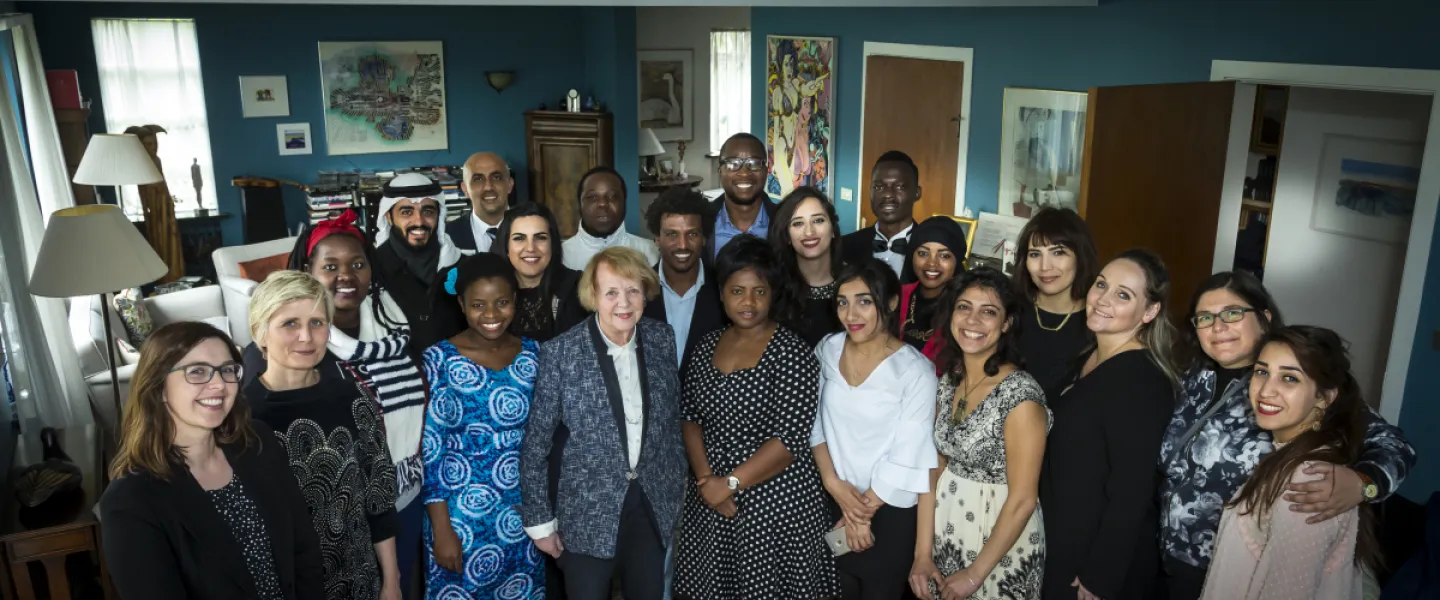
The United Nations University Gender Equality Studies and Training Programme (UNU-GEST) celebrated earlier this week the graduation of 18 fellows awarded a post-graduate diploma in international gender studies. The fellows came from 12 different countries; six men and twelve women from Malawi, Mozambique, Palestine (West Bank), Uganda, Afghanistan, Somalia, Lebanon, Iraq, Tunisia, Nigeria, Ethiopia and Jamaica. The graduating class is the largest since the beginning of the programme and it is the fifth cohort after it became a part of the United Nations University in 2013 as a result of a trilateral agreement between the University of Iceland, the Icelandic Ministry for Foreign Affairs and the UN University (UNU). Since the start of the programme in 2009, 86 students have graduated from the programme.
The graduation ceremony was held in the ceremonial hall of the University of Iceland with distinguished speakers, including Dr. Jón Atli Benediktsson, the Rector of the University of Iceland, Dr. Guðmundur Hálfdánarson, Dean of the School of Humanities and Mr. Stefán Haukur Jóhannesson, Permanent Secretary of State and the first lady, Eliza Jane Reid, as an honorary guest. Dr. Irma Erlingsdóttir, Director of UNU-GEST, opened the graduation ceremony and Dr. Jón Atli Benediktsson welcomed the fellows and guests providing inspiring words for the graduates, thanking them for their contribution towards the University of Iceland and its community during the spring term. Mr. Jóhannesson stressed the importance of gender equality for sustainable development to become reality by 2030, especially to engage and include men to reach this imperative human right and moral obligation. Ms. Caroline Kalangala Kanyago from Uganda spoke on behalf of the graduating fellows. Arriving in Iceland at the height of winter was a source of inspiration in her powerful speech where she compared the goal of achieving gender equality in a world where gender inequalities are normalised to moving against the strong winds in Iceland: “It is going to be tough. It will need new and better strategies. We are going to face resistance and we shall move faster if we work together. But as UNU-GEST graduates, we have a framework that we can work with. We know the questions to ask-and this should help us move forward.”
The first lady, Eliza Reid, delivered the Vigdís Finnbogadóttir Award for the best final assignment, this year received by Mr. Yeshiwas Degu Belay from Ethiopia for this PhD proposal paper on ‘Breaking Barricades, Making Peace: Women in Ethiopian Peace Keeping Missions’. He was supervised by Dr. Valur Ingimundarson, professor of history at the University of Iceland. On this occasion, first lady Reid congratulated the graduating class for the quality of their work, for raising issues of major concern within local, regional and global contexts, and for breaking silences about problems that need to be addressed.
Later in the day, the class of 2017 UNU-GEST fellows were invited to meet Mrs. Vigdís Finnbogadóttir, the former President of Iceland and matron of the UNU-GEST programme, who could not attend the graduation ceremony due to ill-health. That did not stop her from inviting fellows to her home for a brief chat and photo opportunity.
The objective of UNU-GEST is to promote gender equality and women’s empowerment through research and education. Its main target group is professionals from developing countries and post-conflict societies working for governments and civil society organisations. During the semester-long programme the fellows are provided with an interdisciplinary education by specialists from all over the world to make them more equipped to work on gender issues in their respective countries.
UNU-GEST is located within the School of Humanities at the University of Iceland and is supported by the Ministry for Foreign Affairs as a part of Iceland´s contribution to development cooperation efforts. UNU-GEST is one of the four UNU programmes based in Iceland: UNU Fisheries Training Programme (UNU-FTP), the UNU Geothermal Training Programme (UNU-GTP), and the UNU Land Restoration Training Programme (UNU-LRT).